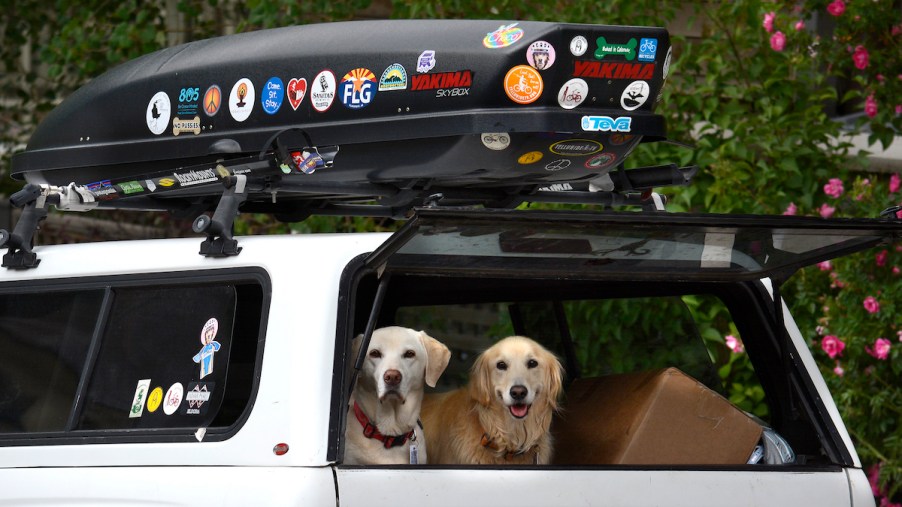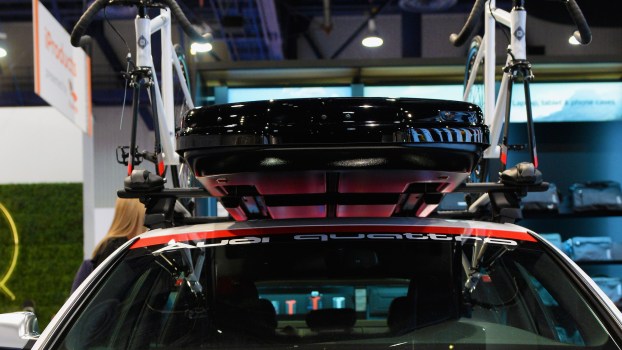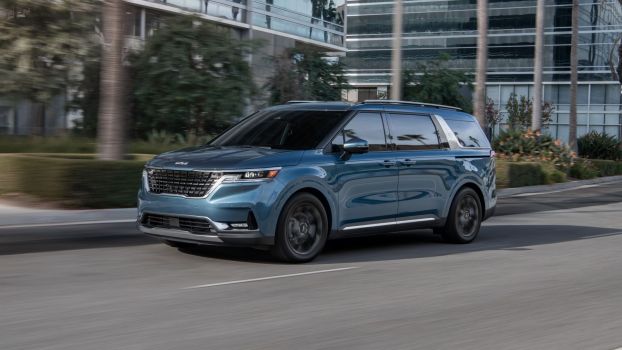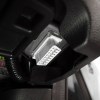
Your Roof Cargo Box Is Ruining Your Car’s MPG More Than You Think
Your car’s gas mileage can make a big difference at the pump, but many factors can change a car’s fuel economy. One of those is a car’s body shape, and an aerodynamic vehicle is more fuel-efficient than a less aerodynamic one. That’s why using accessories such as roof cargo boxes can hurt your car’s fuel economy.
Are roof cargo boxes worth it?

A roof-mounted cargo box is what its name implies — a container you install on the roof of your vehicle. As such, its function is also pretty simple. Rooftop cargo boxes are a handy way to increase the storage capacity of your car. They’re generally lightweight, easy to mount, and durable.
As for how much cargo space they provide, that varies based on the box. There are many options on the market, and they come in many shapes, sizes, and styles. For example, the Thule Motion XT XXL offers 22 cubic feet of cargo space, which is quite a bit for most SUVs. That said, this extra cargo capacity comes at a cost.
How much does a rooftop cargo box affect your car’s mpg?
Although cargo boxes are usually sleek and aerodynamic, they can still significantly affect a car’s fuel economy. According to the Department of Energy, driving with a cargo box on your car’s roof can impact its fuel economy more than if the carrier were attached to the car’s rear.
For example, a 2009 Toyota Corolla traveling at 65 mph gets about 40 mpg. With a 100-pound cargo box attached to the roof, the Corolla’s fuel economy at that speed drops to only 30 mpg, a 25% decrease. By comparison, that same Corolla with a 100-pound box on a rear cargo tray loses only about 1% mpg.
The Department of Energy says that an SUV — in this case, a 2009 Ford Explorer — sees a similar drop in fuel economy. However, it’s worth noting that in the Explorer’s case, while a roof box hurt its fuel economy, it didn’t affect it by as much as it did with the Corolla. When traveling at 65 mph with a 100-pound cargo box on the roof, the Explorer saw a 10% drop in fuel economy. Once again, it saw only a 1% reduction when using the rear cargo tray.
Other accessories that can hurt your car’s fuel economy
Unsurprisingly, Consumer Reports had similar findings. In CR’s tests, a 2019 Nissan Altima midsize sedan saw a 19% drop in fuel economy with a roof box, while a 2019 Toyota RAV4 compact crossover SUV saw a 13% drop in fuel economy. However, Consumer Reports also tested other rooftop accessories. The findings were also similar, though to a lesser extent.
CR found that driving with a roof rack can significantly hurt your car’s fuel economy. That includes roof racks for bikes, skis, and other types of outdoor equipment. But the good news is that a simple roof rack will hurt your car’s fuel economy less than a cargo box on that roof rack.
Carrying just a roof rack, the Altima saw an 11% drop in fuel economy, while the RAV4 saw a mere 2% drop. So if you aren’t using your roof cargo box or rack, it’s a good idea to remove it.




